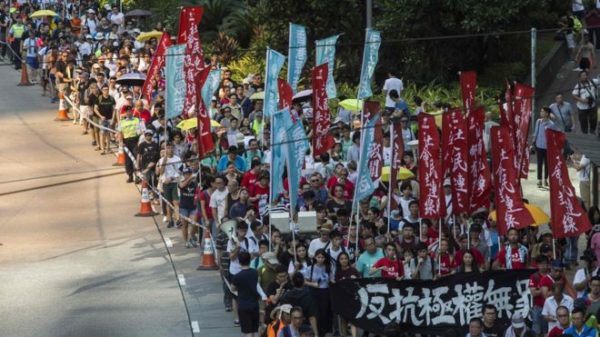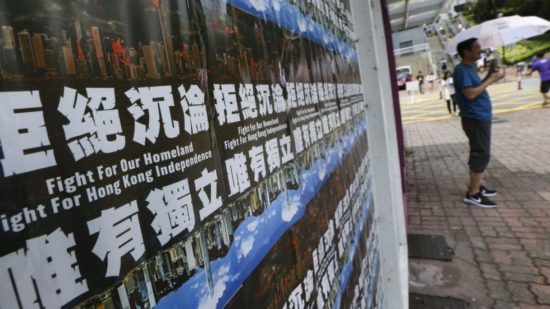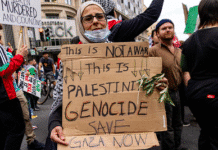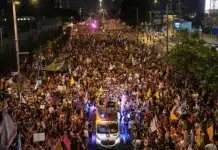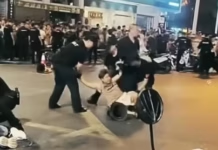Government steps up political repression • University campuses the new battleground
Dikang, Socialist Action (CWI in Hong Kong)
Hong Kong’s pro-government camp is stepping up its vicious campaign of repression against the pro-democracy camp, especially singling out supporters of independence. Support for independence has become increasingly popular among young people as the Chinese dictatorship’s repression intensifies and spills into Hong Kong. A June opinion poll showed 21.9 percent of those aged 25-39 support Hong Kong independence, a slight dip from 23.9 percent in 2016. But clearly, the ferocious campaign by the establishment and mainstream media to demonise independence has only had a very limited effect.
The majority of the pro-democracy parties in Hong Kong oppose independence, while some smaller more radical parties adopt a vague position, listing it as “one of the options”, without putting forward a coherent strategy to realise it. Nevertheless the independence issue is used incessantly by the pro-government camp to justify greater repression. This is linked to the shrill Chinese nationalism of the Beijing regime. It is for this reason that former Chief Executive and pro-Beijing hardliner, Leung Chun-ying, who was the architect of many of today’s repressive measures, is also known as the “father of Hong Kong independence”.
With the start of the new school term in September, pro-independence banners appeared on the campus of Chinese University of Hong Kong, attracting huge publicity and controversy. Similar banners then appeared at several other campuses. The university authorities, egged on by the Beijing loyalist camp, have taken a hard line against the banners, removing them and vowing to punish those responsible. This conflict is still escalating at the time of writing.
Call a one-day student strike
The banner issue has been seized upon by the pro-government camp to justify new intrusive restrictions on campus political activity, and to provide a nationalistic soundtrack for the next steps in its wider repressive agenda. The basic rights of students are at stake such as freedom of speech, of political thought, and the right to organise freely, and not only for students.
The university authorities have no legal basis for the measures they are taking. There is as yet no law against advocating or debating independence in Hong Kong. But this is clearly something the “Mad Dog” wing of the establishment wants to change.
Socialist Action stands firmly for the defence of the democratic rights and freedom of speech of students and all other groups. We say debating independence is a democratic right, not a crime. To resist new repressive restrictions students need to organise actively on campus – a one-day strike of university students would be the most effective response as a way to launch mass resistance to the political crackdown.
Using pro-independence activists such as the Hong Kong localists as a scarecrow to justify repression is a favoured tactic from the Chinese regime’s playbook. It should be remembered that the disqualification of six elected legislators, overturning September’s election results, began with the removal of two localists representing Youngspiration, a small right-wing racist group. The government was able to test the ground by targeting the two, who showed themselves to be exceptionally ill-prepared to offer any campaign of resistance.
Seeing there was no major public reaction, and with the main pan-democratic (liberal bourgeois) parties effectively sitting on the fence over these disqualifications, the establishment camp took this as a green light to widen its attack. It moved against the radical wing of the pan-democrats, targeting a further four legislators including ‘Long Hair’ Leung Kwok-hung of the League of Social Democrats (LSD).
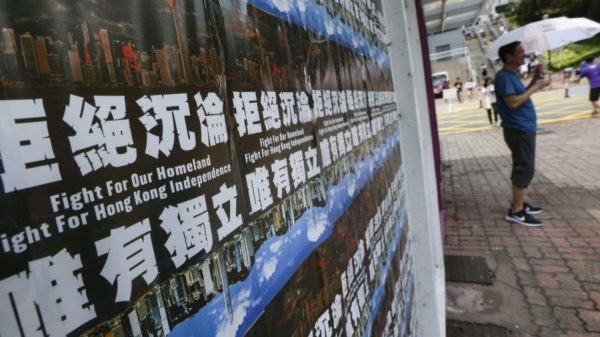
Blue ribbon rally
On Sunday 17 September a rally was organised by pro-government ‘blue ribbon’ supporters including criminal gangs. At this rally, politician Junius Ho Kwan-yiu and other pro-government figures called for pro-independence activists to be “killed”, with Ho adding it was “not a big deal to kill pigs or dogs.” A government spokesman later claimed Ho’s public remarks did not amount to an incitement to violence! This is at a time when peaceful democracy protesters are being jailed for allegedly inciting violent behaviour.
Ho is also pursuing a political vendetta against liberal professor Benny Tai Yiu-ting, a prominent figure in the ‘Occupy Central’ campaign of 2013-14. Ho argues that Tai should not be allowed to teach law students at Hong Kong University because of his advocacy for civil disobedience. Ho initiated a petition with an alleged 80,000 signatures demanding Tai’s dismissal.
In a separate development, Benny Tai went on trial on Tuesday 19 September on charges connected with the 2014 Umbrella Movement. He is charged with conspiracy to commit public nuisance, inciting others to commit public nuisance, and inciting others to incite others to commit public nuisance.
Tai may receive a jail sentence which is becoming the ‘new normal’ in Hong Kong’s political trials. The top judiciary has largely been incorporated into the Chinese regime’s system of oppression. Tai’s case follows the jailing of 16 young activists in August for terms of up to 13 months. Many more political show trials are in the pipeline, with the government intent on decapitating the democracy struggle and especially targeting its most radical components such as the LSD and the student-led Demosisto.
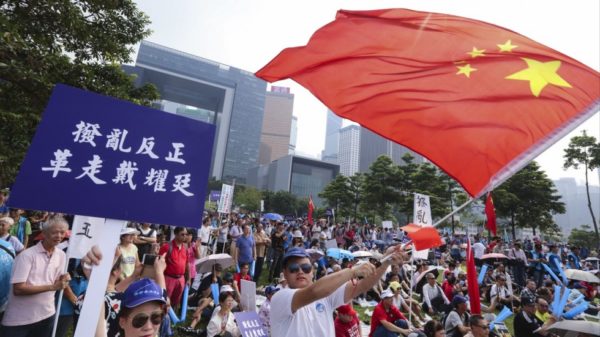
China’s problem
The crackdown in Hong Kong has been ordered by the Chinese dictatorship and echoes an even more chilling attack on dissent inside China.
Hong Kong is a bourgeois ‘semi democracy’ where rights such as a relatively free press, partially open elections, the right of assembly and free speech, have been won by mass struggle over several decades. The last parliamentary elections in September 2016 resulted in a strengthening of opposition parties and groups despite the government having an in-built majority in the Legco. This became the starting signal for a concerted offensive – a political counter-revolution – by the government.
Beijing evidently feels threatened that the mass democracy struggle in Hong Kong could spread to mainland China and inspire demands for democratic rights there. Despite its outward projection of power and economic strength, the ruling ‘Communist’ party-state and its ‘core leader’ Xi Jinping face an array of potentially devastating crises: a debt crunch, galloping social inequality, heightened global tensions and the risk of mass unrest.
The regime fears that Hong Kong’s stubborn tendency to protest in defence of democratic rights, as brilliantly displayed on 20 August when up to 140,000 people crammed the streets over the jailing of the young activists, could become the fuse for an all-China political conflagration.
Socialist Action and the chinaworker.info website closely follow and comment on political developments in Hong Kong and China with the aim of making the democracy struggle as effective as possible. While we condemn the victimisation of pan-democratic politicians and activists such as Benny Tai Yiu-ting, and have initiated numerous protests against the repression, we do not hesitate to highlight what we believe are the mistakes in the political position of the pan-democrats and counterpose what is necessary for the advancement of the struggle.
The liberal pro-capitalist democrats have unfortunately time after time applied the brakes to mass struggle, partly in fear they will lose control to more ‘radical’ forces, and partly in the false belief that their ‘moderation’ can secure democratic concessions and make possible a deal with the dictatorship. In reality, the opposite is true. Today’s unprecedented crackdown shows that the only ‘deal’ possible with the dictatorship will be on the bones of Hong Kong’s democratic rights.
Only militant mass struggle can defeat the current repressive onslaught. To succeed the struggle needs a strategy to replace dictatorial rule – in China and Hong Kong – with a fully democratic system which will only be possible by decisively breaking from the framework of corrupt capitalism and the dictatorship of the billionaire 1%.
